Leaders Call Religious Liberty Advocates to Be Ambassadors for Freedom
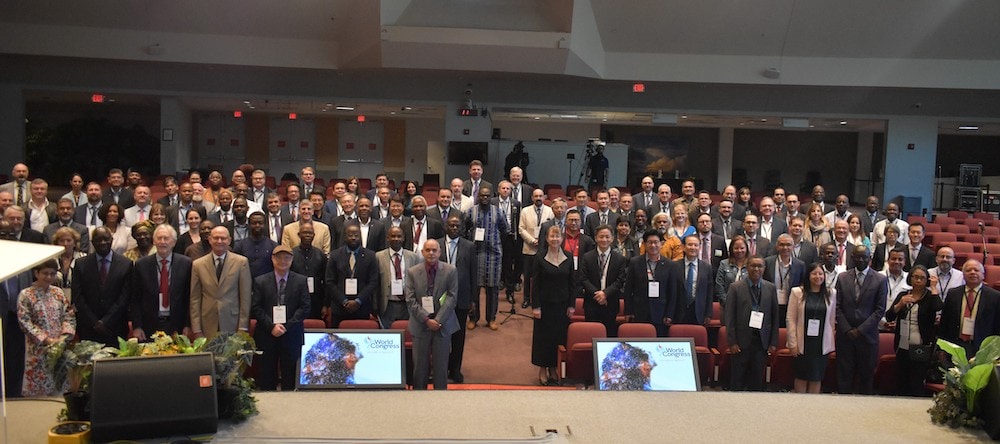
Group photo of some of the participants to the International Religious Liberty Association’s 9th World Congress in Silver Spring, Maryland, United States, August 21-23. [Photo: Marcos Paseggi, Adventist Review]
More than 120 religious liberty leaders and advocates met on August 23 for the closing banquet and awards ceremony of the 9th World Congress of the International Religious Liberty Association (IRLA) in Washington D.C. Attendees reflected on what they learned or reviewed during the event as IRLA leaders called them to recommit to the ongoing work on behalf of religious liberty and freedom of conscience.
The day began with a series of presentations at the event venue in Silver Spring, Maryland, on topics such as religious nationalism and religious freedom, current threats to religious liberty, and the importance of engaging in multilateral efforts. After lunch, participants were bussed to downtown Washington, D.C. to visit landmarks relevant to religious freedom for the U.S. and the world.
The August 23 tour included a visit to the National Archives building, where IRLA Congress participants saw the display of the Constitution of the United States, among other key documents for religious liberty. It also included a stop at the Martin Luther King Jr. memorial and the Franklin Delano Roosevelt memorial. At the end of the tour, participants were invited to participate in the closing banquet at a downtown location just a few blocks from the White House.
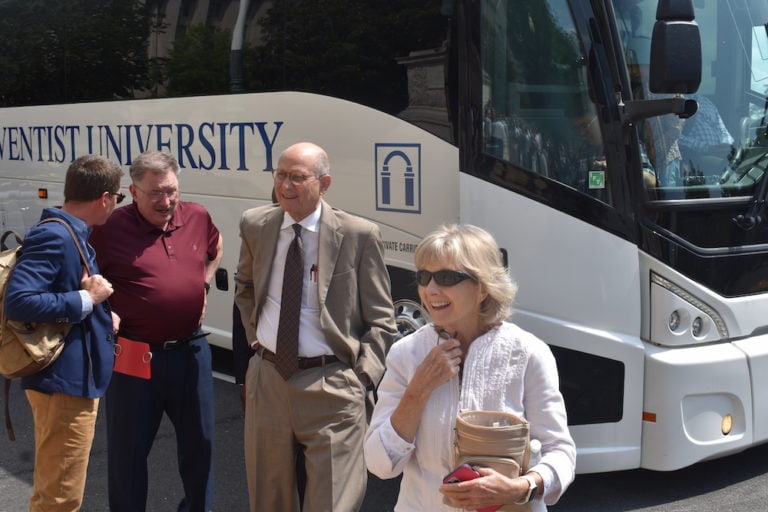
General Conference president Ted N. C. Wilson (center) and his wife, Nancy, participated in the visit to key sites for religious liberty in the United States in downtown Washington, D.C., August 23. [Photo: Marcos Paseggi, Adventist Review]
The IRLA presented three awards to religious liberty advocates during its 9th World Congress. Awardees included Ambassador Sam Brownback, co-president of International Religious Freedom Summit and former U.S. ambassador-at-large for International Religious Freedom. He is also a former U.S. senator and congressman and former governor of Kansas. Brownback, who could not attend the banquet, was recognized a day before after a presentation he gave at the event.
According to IRLA, throughout his distinguished career as a statesman and diplomat, Ambassador Brownback has demonstrated a deep commitment to defending the fundamental right of every individual to practice their faith without fear of persecution or discrimination. “His expertise, his compassion, and his interest in learning more are reasons that one of this year’s International Religious Liberty Association Awards is presented to him,” IRLA deputy secretary-general Bill Knott said in introducing the award.
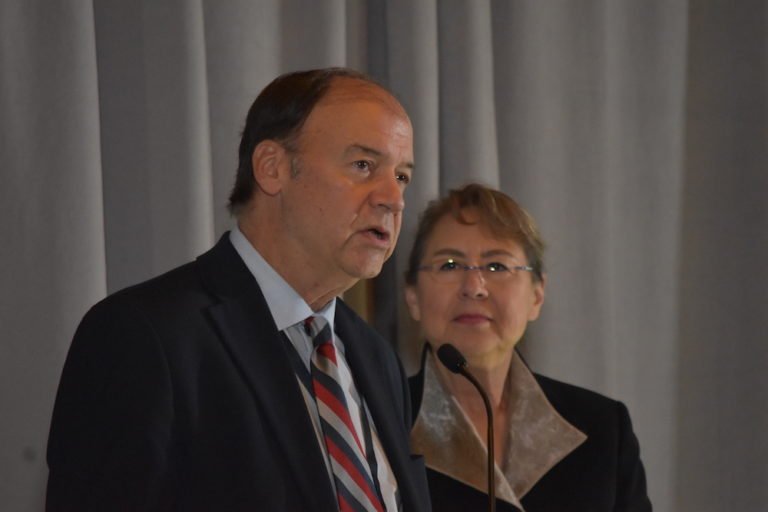
Ambassador John Nay, current IRLA president, welcomes participants to the religious liberty banquet in downtown Washington, D.C., August 23, as the host, General Conference education director Lisa Beardsley-Hardy, looks on. [Photo: Marcos Paseggi, Adventist Review]
The Power of Love
IRLA also recognized the work of trained attorney, diplomat, and editor Bettina Krause, current editor of Liberty magazine and former director of government affairs for the General Conference of Seventh-day Adventists. According to IRLA leaders, Krause was instrumental in building strong, collaborative relationships between the church world headquarters and government agencies, non-governmental organizations, and groups advocating for religious freedom.
“Bettina Krause incarnates a personal dimension of religious freedom, and that is selflessness,” Diop said. “She creates things for other people. And she never talks about her qualifications. She even wrote many things anonymously. But her passion for religious freedom has been absolutely amazing.”
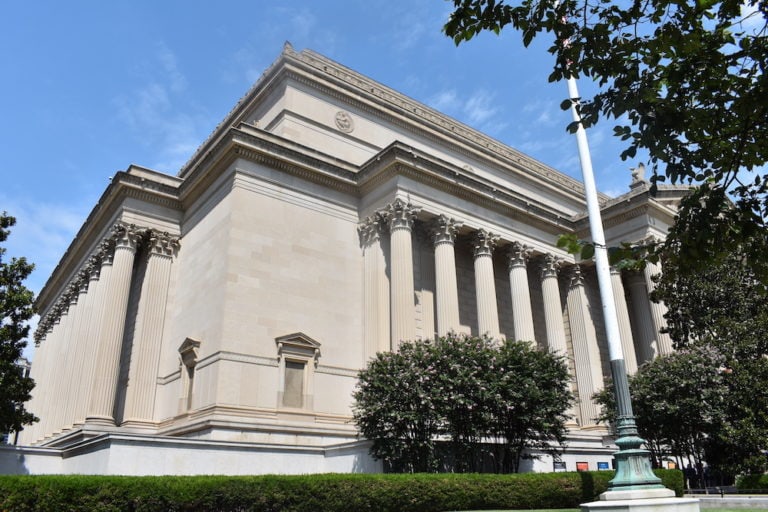
At the National Archives, IRLA congress participants saw the display of the Constitution of the United States, among other key documents for religious liberty. [Photo: Marcos Paseggi, Adventist Review]
Alleviating Tensions and Promoting Cooperation
Finally, IRLA recognized the work of former secretary general of Religions for Peace Azza Karam, a woman of the Muslim faith who is a member of the U.N. secretary-general’s High Level Advisory Board on Effective Multilateralism. According to IRLA, Karam has made significant contributions to various interfaith initiatives.
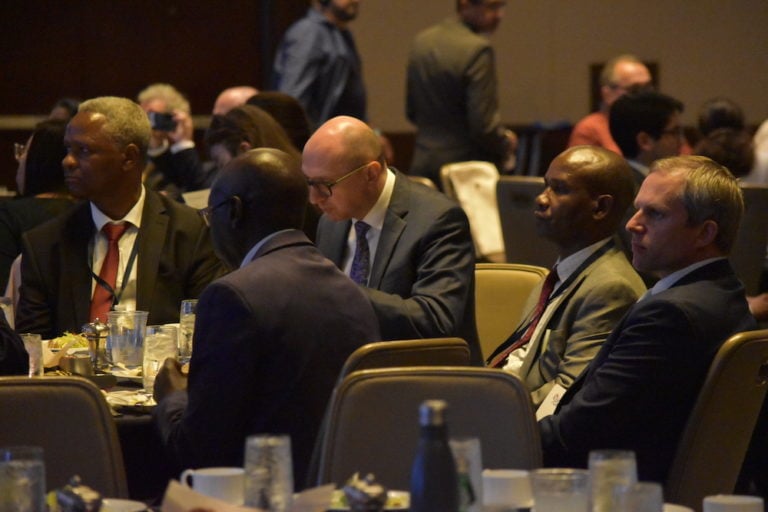
More than 120 church leaders and religious liberty advocates attended the IRLA congress’s closing banquet and awards ceremony on August 23. [Photo: Marcos Paseggi, Adventist Review]
Diop, who called Karam “a gift to the whole of humanity,” acknowledged her work for “bringing people and nations together.” Thanks to her dedicated work, Diop added, “now world leaders from all faiths can at least hear about religious freedom.… I am deeply grateful for your efforts.”
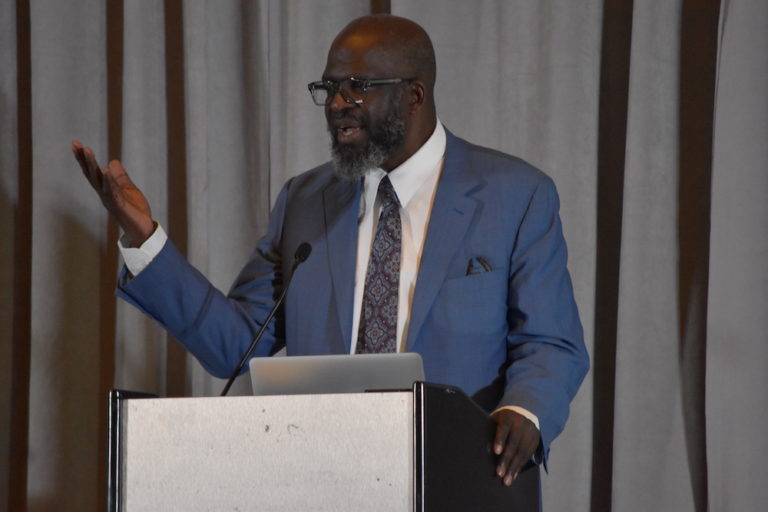
IRLA secretary-general Ganoune Diop addresses religious liberty leaders and advocates at the IRLA congress’s closing banquet and awards ceremony in downtown Washington, D.C. [Photo: Marcos Paseggi, Adventist Review]
Visibly moved, Karam begged each religious liberty advocate present “to see Muslims and Islam beyond the nasty headlines; to see every Muslim as a believer, and … to be just a little bit kinder to many who would never hurt a soul but whose religion is being hurt so badly.”
A Part of Who We Are
After the awards ceremony, General Conference vice president Audrey Andersson called attendees to take all they learned during the event and incorporate it in their everyday life and professional practice. “We were just discussing at our table,” she acknowledged, “how we are going to make all this part of who we are and a reality in all of our interactions.” The key, she said, is committing to “giving everyone the freedom to make their choice with freedom of conscience.”
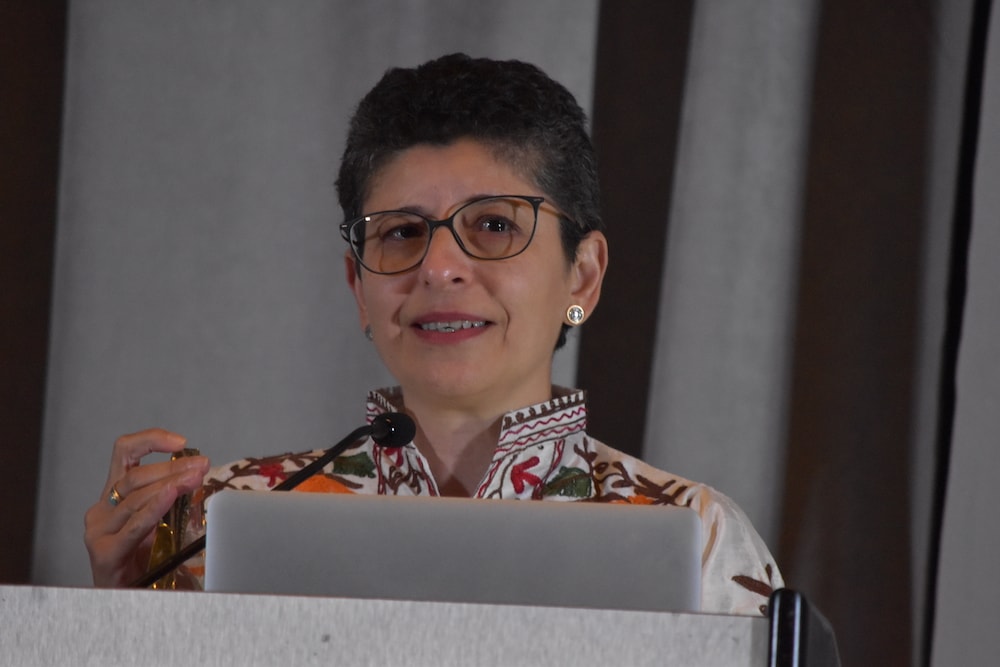
Awardee Azza Karam called religious leaders “to see Muslims and Islam beyond the nasty headlines” and “to see every Muslim as a believer.” [Photo: Marcos Paseggi, Adventist Review]
Before the closing prayer, General Conference executive secretary Erton Köhler called leaders and advocates to keep working on behalf of religious liberty. “I hope that you can leave this place with a renewed commitment to be an ambassador of religious liberty,” Köhler said. “As Ambassador Brownback said, ‘for everyone, everywhere, all the time,’ ” he emphasized. “Let us defend religious liberty with all our hearts.”